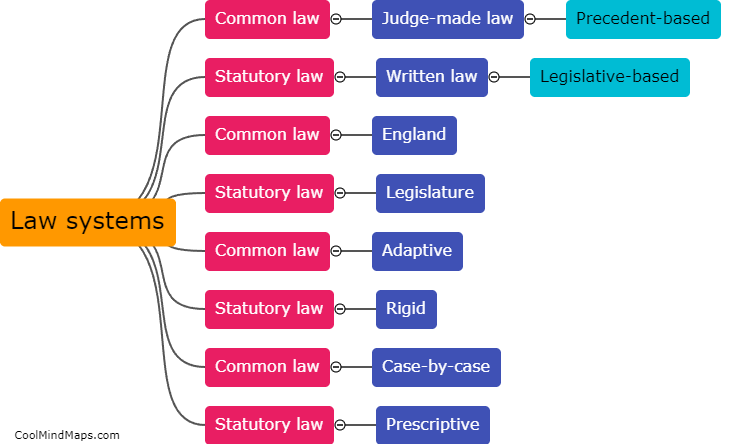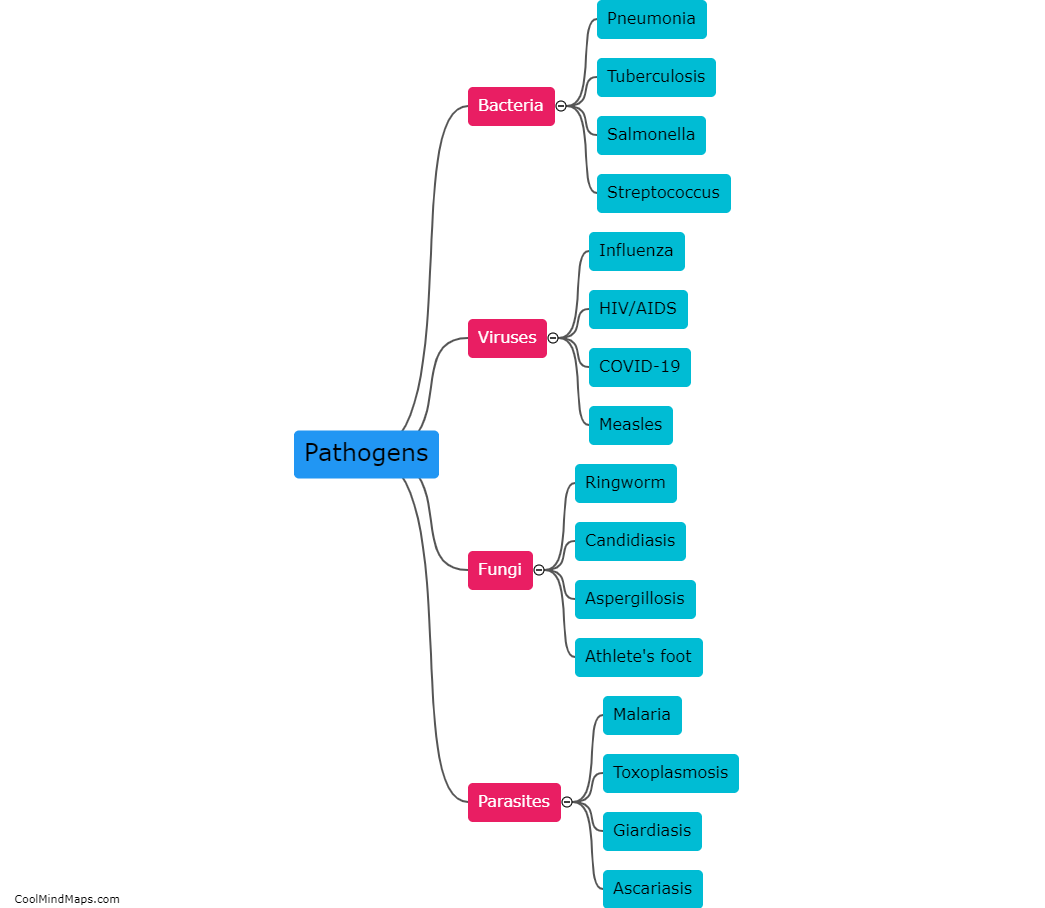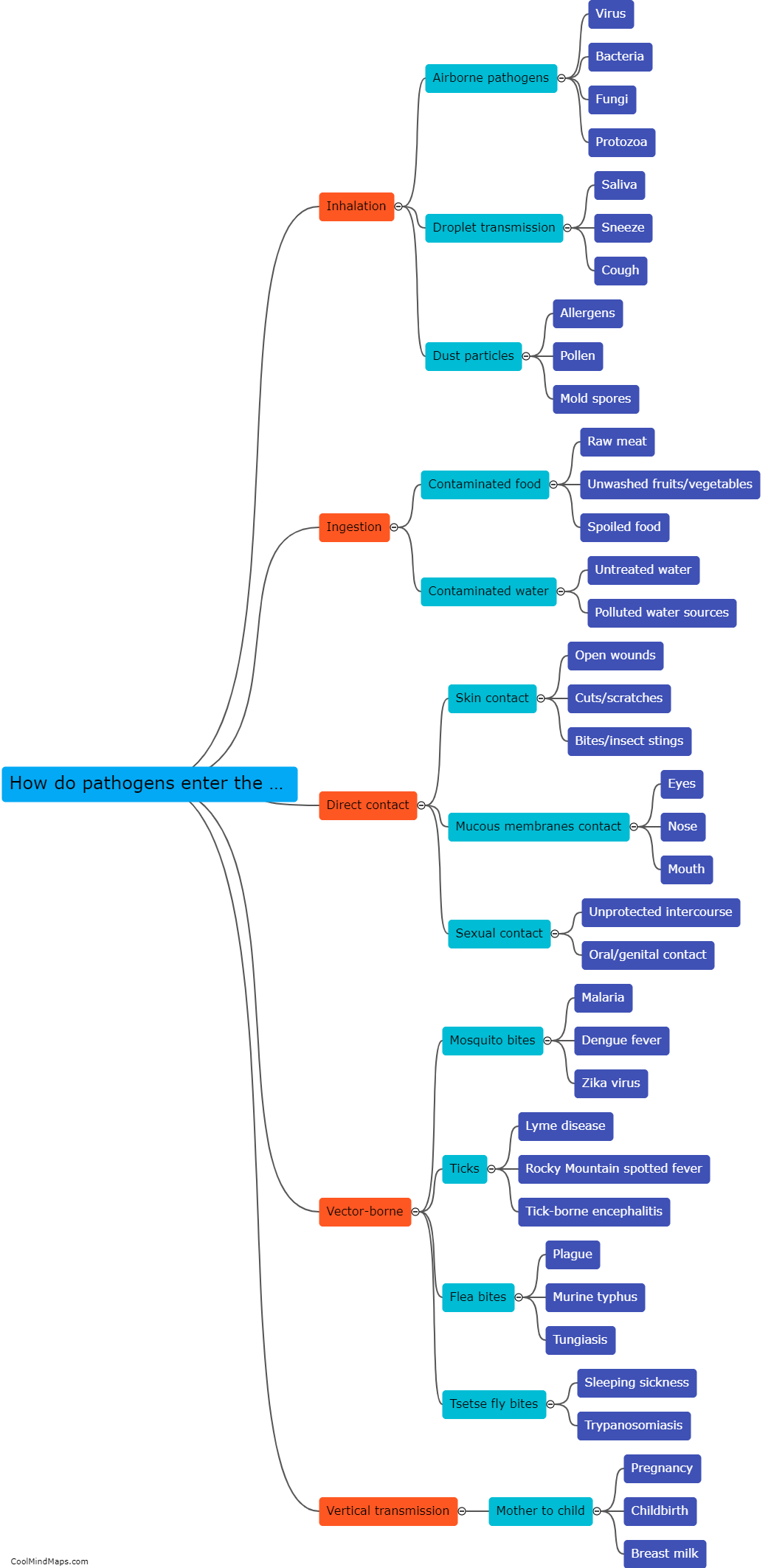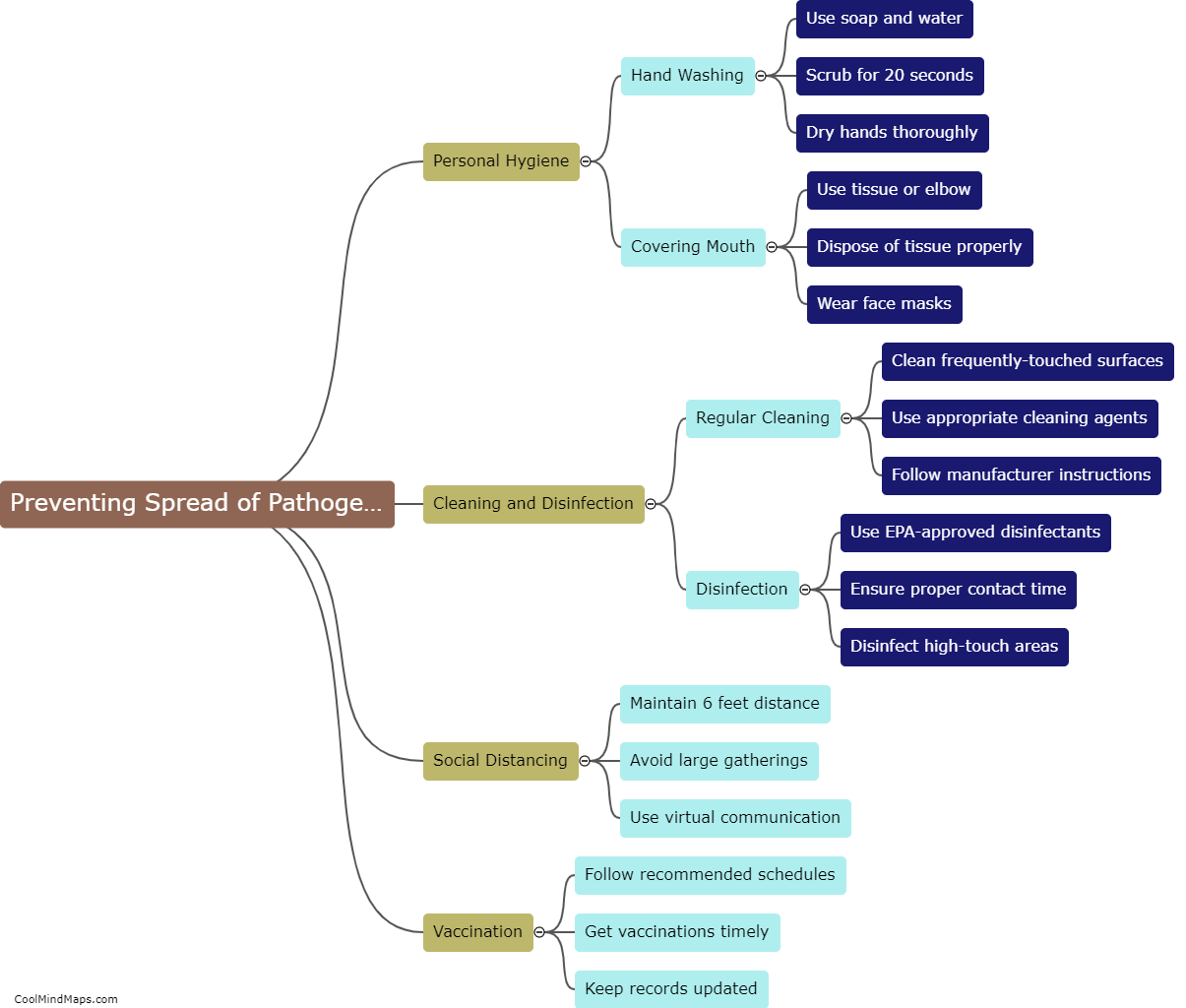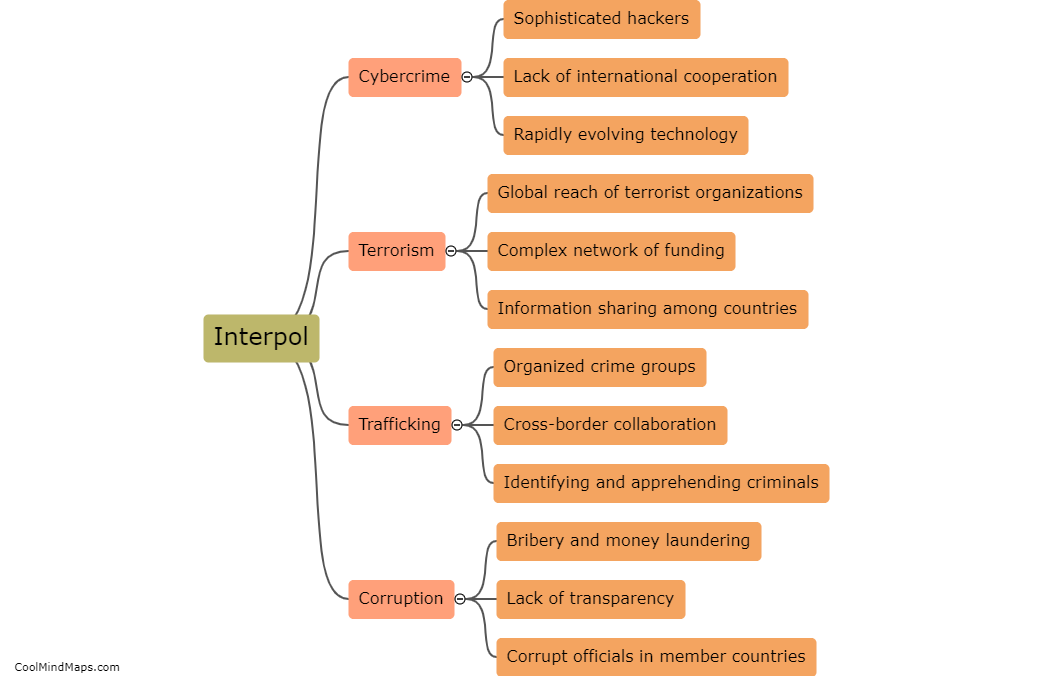What are pathogens?
Pathogens are microorganisms, such as bacteria, viruses, fungi, and parasites, that can cause disease in humans, animals, or plants. They have the ability to invade and multiply within our bodies, disrupting normal functions and causing illness. Pathogens can be transmitted through direct contact with infected individuals, ingestion of contaminated food or water, inhalation of airborne particles, or through vectors such as mosquitoes that carry disease-causing agents. Common examples of pathogens include the flu virus, E. coli bacteria, and the malaria parasite. Understanding pathogens is crucial for preventing and controlling the spread of infectious diseases and developing appropriate treatments and vaccines.
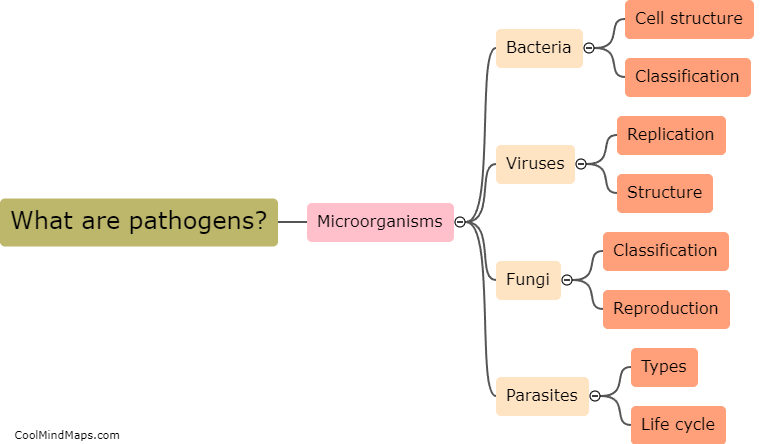
This mind map was published on 19 December 2023 and has been viewed 110 times.


